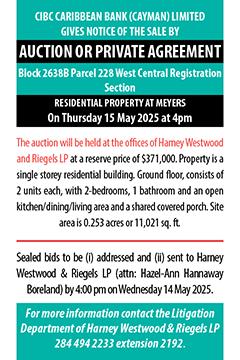Billionaires Flee Havens as Trillions Pursued Offshore
Billionaire Dmitry Rybolovlev, Russia’s 14th-richest person, and his wife, Elena Rybolovleva, have been brawling for almost five years in at least seven countries over his $9.5 billion fortune.
In a divorce complaint originated in Geneva in 2008, Rybolovleva accused her husband of using a “multitude of third- parties” to create a network of offshore holding companies and trusts to place assets -- including about $500 million in art, $36 million in jewelry and an $80 million yacht -- beyond her reach.
She has brought legal action against the 48-year-old Rybolovlev in the British Virgin Islands, England, Wales, the U.S., Cyprus, Singapore and Switzerland, and is seeking $6 billion.
The suits provide a window into the offshore structures and secrecy jurisdictions the world’s richest people use to manage, preserve and conceal their assets. According to Tax Justice Network, a U.K.-based organization that campaigns for transparency in the financial system, wealthy individuals were hiding as much as $32 trillion offshore at the end of 2010. Fewer than 100,000 people own $9.8 trillion of offshore assets, according to research compiled by former McKinsey & Co. economist James Henry.
“For a lot of people, it’s not just the objective of not paying taxes,” Philip Marcovici, an independent Hong Kong-based tax lawyer and board member of Vaduz, Liechtenstein-based wealth adviser Kaiser Partner Group, said in a telephone interview. “It’s the objective of obtaining the human right to privacy and seeking confidentiality about their financial affairs.”
Van Gogh
More than 30 percent of the world’s 200 richest people, who have a $2.8 trillion collective net worth, according to the Bloomberg Billionaires Index, control part of their personal fortune through an offshore holding company or other domestic entity where the assets are held indirectly. These structures often hide assets from tax authorities or provide legal protection from government seizure and lawsuits.
Rybolovlev, who lives in Monaco, made most of his fortune from the sale of two potash fertilizer companies for a combined $8 billion in 2010 and 2011. He held both companies -- OAO Uralkali and OAO Silvinit -- through Cyprus-based Madura Holding Ltd.
Some of his art -- including works by Van Gogh, Monet and Picasso -- is now held in Xitrans Finance Ltd., a British Virgin Islands-based company, and stored in Singapore. Rybolovlev bought a New York City apartment for $88 million in 2011 using a trust associated with his daughter, Ekaterina. The penthouse was purchased from the wife of former Citigroup Inc. chairman Sandy Weill, according to divorce documents filed in New York.
Liechtenstein, Cyprus
In the suit, Rybolovleva said the billionaire moved many of his assets, including jewels, furniture and the yacht, under the control of two trusts, Aries and Virgo, that he established in Cyprus in 2005, a few weeks after she refused to sign a post- nuptial agreement he offered her.
Sergey Chernitsyn, a spokesman for Rybolovlev at his Monaco-based family holding company Rigmora Holdings Ltd., said he declined to comment. Marc Bonnant, Rybolovleva’s Geneva-based attorney, also declined to comment.
Since the onset of the global financial crisis in 2008, the laws and treaties that created and sustained the offshore tax- dodging industry and allowed for the kinds of maneuvers used by Rybolovlev have been undergoing a shift toward transparency.
Liechtenstein, once fabled for its banking secrecy laws, began in 2009 to require its financial institutions to hold -- and release when required -- details about the beneficial owners of all accounts held there. Andorra and Switzerland made their own concessions within a day of Liechtenstein.
Money Laundering
Singapore, the heart of Asia’s banking and offshore industry, will make laundering of profits from tax evasion a crime under a law taking effect on July 1. Luxembourg announced on April 10 that it would end its bank secrecy policy in 2015.
Cyprus was bailed out of its financial troubles in March by the European Union, which required the nation to impose a tax on bank deposits of more than 100,000 euros. That month, the country lost $2.4 billion in deposits, according to data from the European Central Bank.
The shift toward transparency has led many of the world’s wealthiest to reassess how and where they hold their assets, according to Goran Grosskopf, a Lausanne, Switzerland-based economist who has advised several billionaires, as well as the Russian government.













.jpg)



















1 Response to “Billionaires Flee Havens as Trillions Pursued Offshore”
How come Bloomberg knows this, the Guardian knows it and numerous other clued up organizations know it but we here in the BVI live in denial?